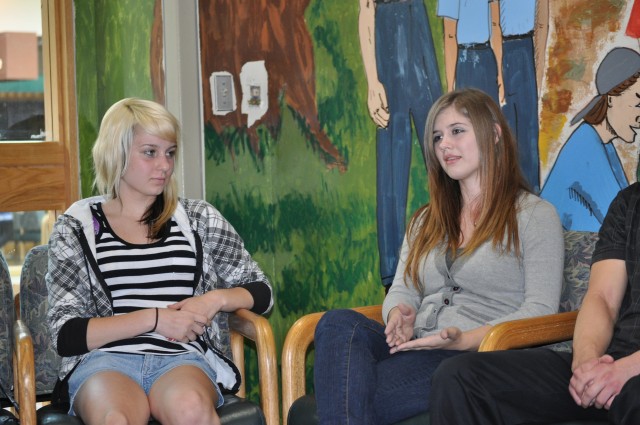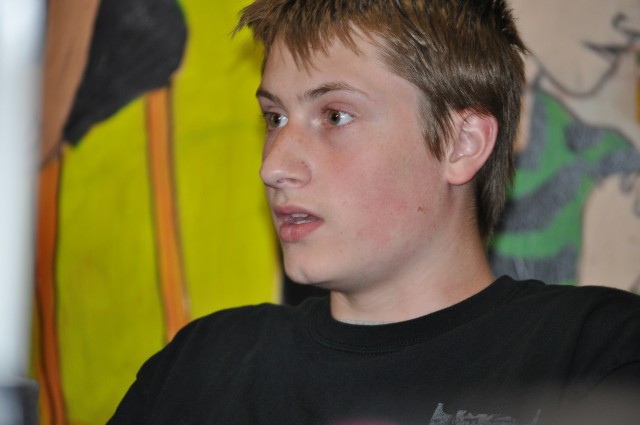Part 1: teens chatter about deployment
Editor's Note: Beginning this month, The Mountaineer will be focusing a three-part series on what our health care team is doing to care for our Soldiers' teenagers
TACOMA, Wash. -- Eight teenagers joined practitioners from the Adolescent Specialty Clinic and participated in Madigan Healthcare System's second teen forum designed to provide them with an outlet to discuss how this war is affecting our Soldier's adolescents.
The comments and the discussion were open, honest, and gave a view to the providers into the core of teens that have faced repeated deployments of a Family member and are coping with stress well above their peers.
"It's a very crucial time of life. They still have an identity and a sense of self to create, and a lot of their coping mechanisms are not fully developed either. So if you just take the normal stress levels and then you add on the stress of a Family member's deployment it can be tremendously difficult," said Col. Franklin Wood, chief of the Adolescent Specialty Clinic.
In order to address some of those topics, adolescents aged 12 or older were invited to participate in an open forum. The setting provided a chance to discuss stressors with their peers including changes in relationships, increased responsibility at home and an attitude switch.
"It's more difficult for me to miss people. If it's someone that's really, really close to me not so much. The fact that my dad was gone, it bothers me and I wish he was here, but less, a lot less," said Paul Geye, a teen who participated in the panel.
While the panel was led by doctors, teens controlled the discussion amongst the group. After a few minutes the group was warmed up enough that touchy topics became commonplace.
The teens relayed how their parents may or may not have acted differently when they returned and how their relationship with the deployed parent has changed after their return. The room is tense; clearly the teens are on edge as they discuss personal details.
"I don't think things ever really begin to [get better]," said Lauren Webber, another teen panel participant.
Even more important, they chatted about the types of support the teens received and how they reacted to it. They admitted to finding it annoying when some of their classmates, who aren't their friends, ask if they are OK.
"It's a customary thing for them to ask me if I'm OK. It's not sincere. It's my thing, it's not theirs to worry about," Geye said.
Following the panel, Wood and Dr. David DeWine, pediatric psychologist, discussed how the piece will help them provide care to teens in their clinic.
They intend to use the forum not only for reflection on future care, but also to bring awareness to the issue across the Pediatric field at the National Conference and Exhibition for the American Academy of Pediatrics, where Wood will present the video of the panel to raise awareness of the issues faced by military Family members across the Pediatrics field.
"We consider it part of our mission to worry not just about their physical health, but also their mental health," Wood said.
For more about the Adolescent Specialty Clinic's work with teens, look for our next article in the three part series in November's Mountaineer. Want to read more about the teen's impressions during the panel'
There is more to this story available on our website at: www.mamc.amedd.army.mil.




Social Sharing